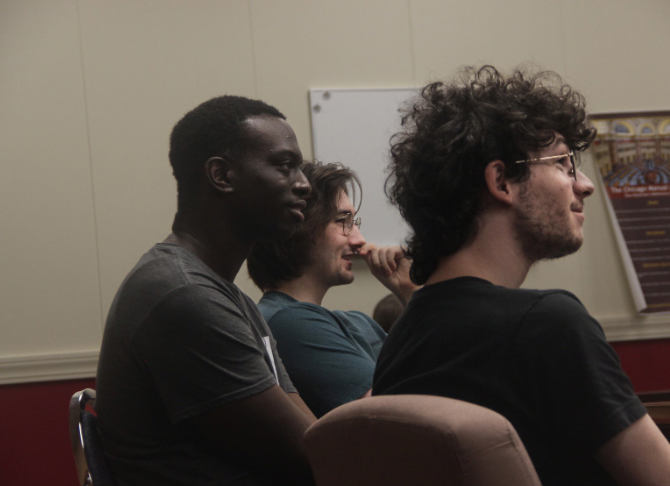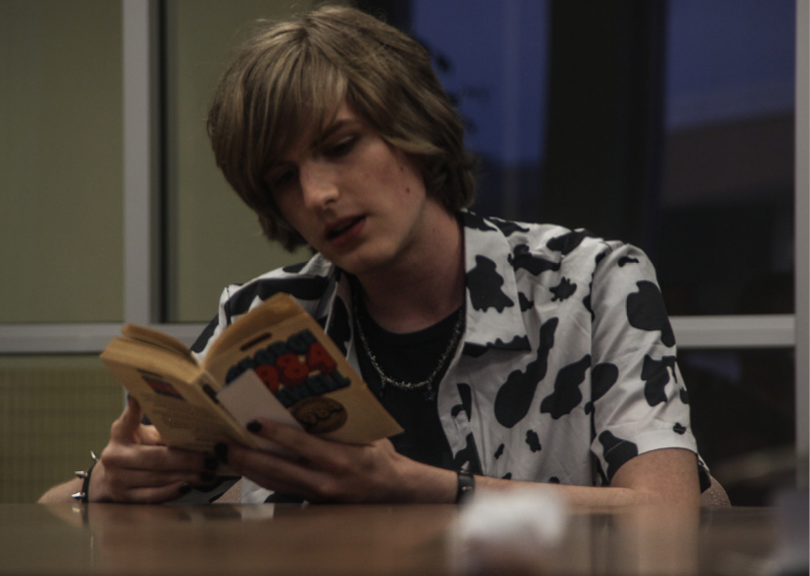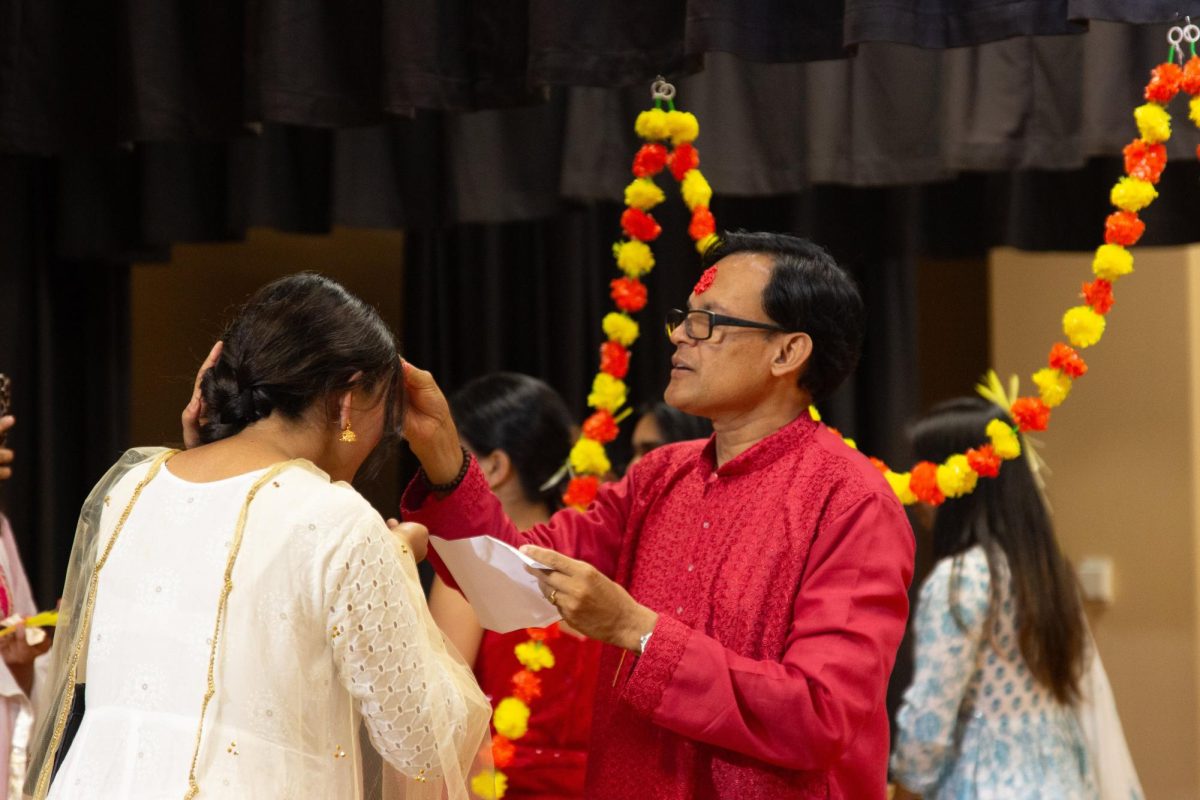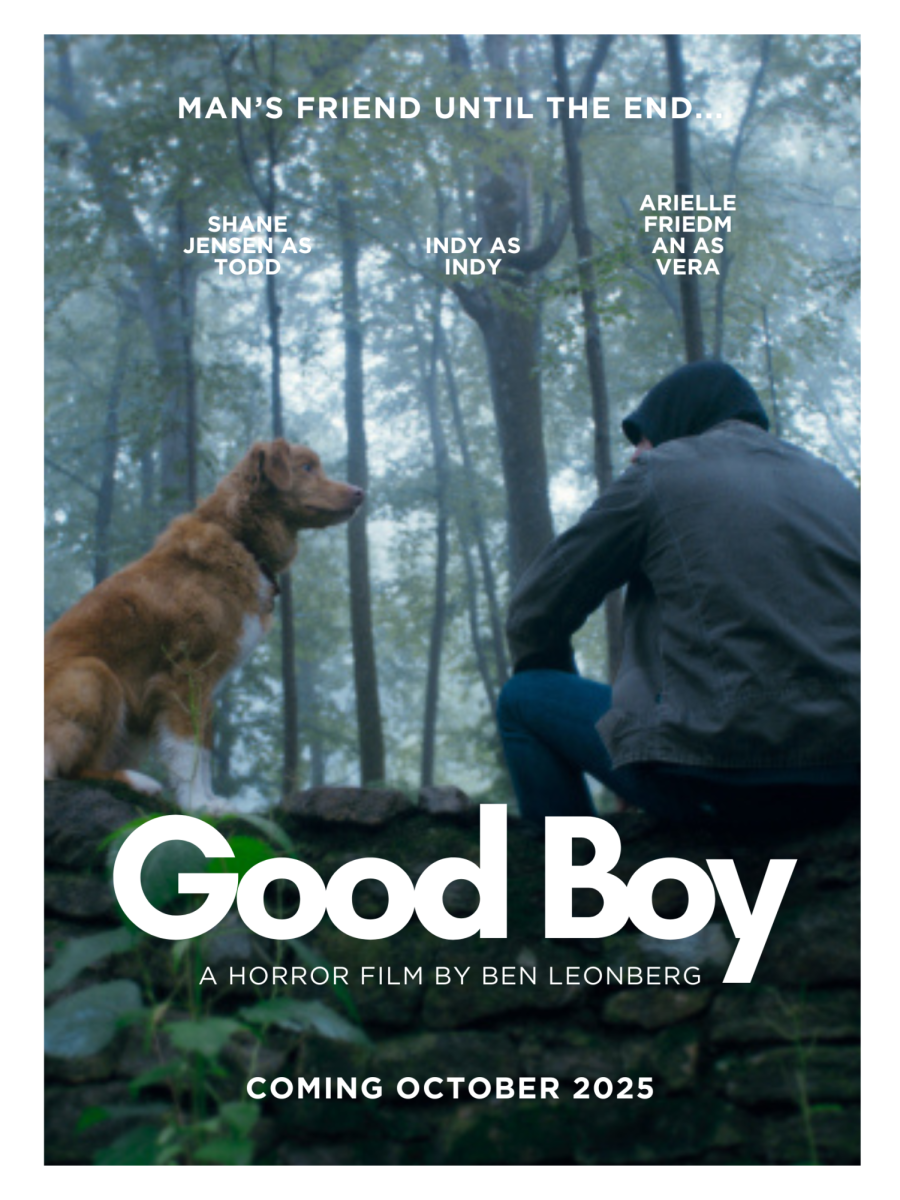On Sep. 24, Sigma Tau Delta hosted an event allowing students to share a passage from their favorite censored book.
According to the National Art Education Association, “The freedom to create and to experience works of art is essential to our democracy. At present, this freedom is under attack.” The English RSO’s event appreciated authors’ censored works.
Sigma Tau Delta faculty advisor Patrick Morgan discussed the importance of bringing attention to banned books.
“I believe that writing is thinking. So, when you ban a book, you’re banning certain thoughts and certain people. You’re choosing to repress certain thoughts, perhaps because you disagree with them,” Morgan said. “Banning books clashes, in a fundamental way, with democracy, with the essential idea of encountering ideas that are not your own. It is a sign of totalitarianism, not democracy.”
Members of Sigma Tau Delta encouraged students to bring excerpts from their favorite banned books.
President of the RSO and graduate student Mallory Kaul read a snippet of “The Bluest Eye” by Toni Morrison. The novel is set during the Great Depression and tells the story of a young African American girl, Pecola Breedlove. Breedlove believed having blue eyes would make her more beautiful due to white cultural standards.
Kaul talked about the harm of banning books.
“Censorship is the death of creativity and expression. If we are silenced through literature, we can be silenced through anything,” Kaul said. “By hosting the Banned Books Reading, we bring awareness to how rapidly books are being banned all over the world.”
The United States banned “The Bluest Eye” in March of 1999 due to depictions of child sexual abuse, racism, incest, violence and disturbing language.
Freshman pre-med major Brooke Babin brought a novel that focuses on a modern issue: feminism.
Babin read a passage from Kate Chopin’s “The Awakening.” This novel follows housewife Edna Pontellier as she breaks free from traditional gender roles.
Published in April of 1899, the novel shocked and offended readers because the main character’s sexual identity and independence differed from other female characters of the time.
Babin talks about her experience with the book reading.
“My favorite banned book reading tonight was ‘The Outsiders’ because of the main character, Ponyboy. The book’s characters are complex and unique, with important relationships,” Babin said. “The whole story is very authentic.”
From racism to feminism, the banned book event also included excerpts about AI.
Morgan taught in China for one semester, and one of his students wrote a 72K-word sci-fi novel. The book was about AI taking over the world and humans becoming its pets.
His student attempted to get the book copyrighted in China; however, the National Copyright Administration of the People’s Republic of China (NCAC) refused to patent the novel due to policies. The office did not give the student a reason why it could not be copyrighted, so they hypothesized that it was because they questioned what’s beyond human in their book.

Other books read during this event were George Orwell’s “1984,” Kurt Vonnegut’s “Slaughterhouse-Five,” Vladimir Nabokov’s “Lolita,” Alice Walker’s “The Color Purple” and S.E. Hinton’s “The Outsiders.”
School board policies censored these books due to at least one of the following themes: anti-government, violence, pedophilia, sexual violence, abuse, homosexuality, gang violence and promotion of seemingly “unchristian” values.
Censorship still rains heavily on creative hearts, but ULM’s Sigma Tau Delta works to help authors fully express their works.





